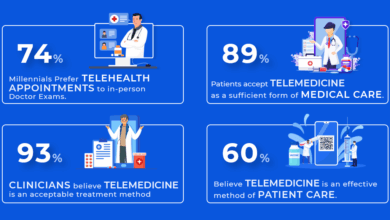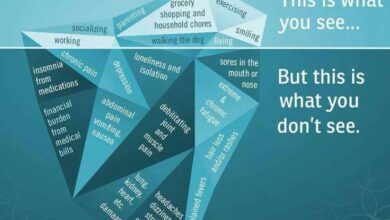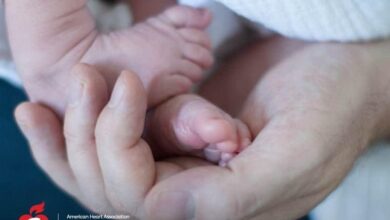
Binge eating recovery stories offer a powerful glimpse into the journeys of individuals navigating the complexities of this disorder. These narratives highlight the resilience and strength it takes to overcome challenges, discover healthy coping mechanisms, and build a life free from the grip of binge eating. From understanding the root causes and diverse support systems, to practical strategies for recovery, these stories showcase the transformative power of self-care and professional guidance.
This exploration delves into the struggles and triumphs, offering inspiration and valuable insights for those seeking recovery.
This journey is often paved with setbacks and triumphs, highlighting the importance of support systems, self-compassion, and ongoing commitment to recovery. Real-life accounts will illustrate the wide range of challenges faced and the diverse paths to recovery.
Understanding Binge Eating Recovery
Binge eating disorder is a serious eating disorder characterized by episodes of uncontrolled eating, often to the point of discomfort or distress. It’s more than just overeating; it involves a complex interplay of emotional, psychological, and physiological factors. Understanding these factors is crucial for effective recovery. The journey to recovery is often challenging, but it’s absolutely possible with the right support and strategies.Binge eating disorder is frequently misconstrued as simple overeating.
However, it’s a serious mental health condition that significantly impacts quality of life. Individuals with binge eating disorder experience intense distress and shame surrounding their eating behaviors, leading to feelings of guilt, depression, and anxiety. Seeking professional help is a crucial first step towards recovery, enabling individuals to develop coping mechanisms and build healthier relationships with food and their bodies.
Characteristics of Binge Eating Disorder
Binge eating disorder is characterized by recurrent episodes of binge eating. These episodes involve consuming large quantities of food in a short period, often feeling a lack of control over the eating. Individuals may eat even when they’re not physically hungry, driven by emotional or psychological factors. The experience is often accompanied by feelings of guilt, shame, and distress.
Common characteristics include eating rapidly, eating until uncomfortably full, eating alone due to embarrassment, and feeling disgusted with oneself after eating.
Emotional and Psychological Factors
Emotional and psychological factors play a significant role in the development and maintenance of binge eating disorder. Underlying issues like stress, anxiety, depression, and low self-esteem can trigger or exacerbate binge eating episodes. Trauma, past experiences, and difficult life events can also contribute to the condition. These emotions often manifest as a coping mechanism for managing negative feelings or stressful situations.
For instance, someone experiencing intense stress might turn to food for comfort, inadvertently triggering a binge-eating episode.
Physiological Responses to Binge Eating
Physiological responses to binge eating are varied and can include digestive discomfort, bloating, and feelings of sluggishness. The body’s metabolic processes can also be affected, potentially leading to weight gain and associated health concerns. Over time, frequent binge eating can contribute to long-term health problems, including cardiovascular issues, type 2 diabetes, and sleep disturbances.
Importance of Seeking Professional Help
Seeking professional help is crucial for effective binge eating recovery. A therapist specializing in eating disorders can provide guidance, support, and evidence-based strategies for managing the disorder. This professional support helps individuals understand the root causes of their binge eating, develop coping mechanisms, and build healthier relationships with food. Support groups and educational resources can also be beneficial.
Stages of Binge Eating Recovery
Recovery from binge eating disorder is a journey, not a destination. It typically involves distinct stages, each with its own set of challenges. The stages are not necessarily linear, and individuals may move back and forth between them. A comprehensive understanding of these stages is essential for individuals to navigate the recovery process effectively.
Stages of Binge Eating Recovery: A Table
| Stage of Recovery | Common Challenges | Coping Strategies | Resources |
|---|---|---|---|
| Initial Awareness & Acceptance | Denial, shame, fear of judgment, difficulty identifying triggers | Seeking professional help, joining support groups, practicing self-compassion, journaling | Therapists specializing in eating disorders, support groups (e.g., Overeaters Anonymous), online resources |
| Developing Coping Mechanisms | Relapse, difficulty regulating emotions, managing cravings | Identifying triggers, practicing mindfulness, stress reduction techniques (e.g., meditation, deep breathing), building a support system | Therapy sessions, relaxation exercises, stress management workshops, nutritional counseling |
| Building Healthy Habits | Maintaining progress, avoiding relapse, establishing healthy routines | Creating a balanced diet, engaging in regular physical activity, setting realistic goals, practicing self-care | Nutritionists, fitness trainers, support groups, relapse prevention programs |
| Sustaining Recovery | Maintaining healthy habits, preventing relapse, ongoing support | Regular check-ins with therapist, maintaining support network, practicing self-compassion, recognizing and addressing triggers | Ongoing therapy, support groups, relapse prevention strategies, self-care practices |
Types of Recovery Support Systems
Navigating the path to recovery from binge eating disorder is a deeply personal journey. It’s crucial to understand that support systems play a vital role in fostering healing and sustainable change. This journey requires a combination of strategies and resources, and choosing the right support system is a key element in creating a robust plan for recovery. Different approaches offer varying levels of assistance, and tailoring your support system to your unique needs is essential.Understanding the strengths and weaknesses of various support systems can empower individuals to make informed decisions about the resources that best suit their circumstances.
A well-rounded support system often includes a combination of personal connections, professional guidance, and self-care practices. This multifaceted approach helps individuals develop coping mechanisms, build resilience, and maintain long-term recovery.
Family and Friends
Family and friends can be invaluable allies in recovery. Their unwavering support can provide a sense of belonging and encouragement during challenging times. Open communication and understanding are crucial for fostering a supportive environment. A supportive network can offer practical assistance, emotional validation, and a listening ear, helping individuals feel less isolated in their struggles. However, family members may struggle with understanding the complexities of binge eating disorder, or may unintentionally enable the behavior through codependency or overprotectiveness.
This can inadvertently hinder progress if not approached with careful consideration and open communication.
Support Groups
Support groups, both online and in-person, provide a safe space for individuals to connect with others who share similar experiences. This shared understanding fosters empathy and reduces feelings of isolation. Support groups offer a platform for peer-to-peer support, sharing coping strategies, and learning from others’ journeys. These groups can provide a sense of community and validation, encouraging individuals to feel less alone in their struggles.
However, the support provided by a group can vary, and not all groups may offer the necessary guidance or structure for every individual. Group dynamics and the level of facilitation can also influence the effectiveness of the support.
Professional Therapy and Counseling
Professional therapy and counseling offer structured guidance and personalized strategies for recovery. Therapists can help individuals identify triggers, develop coping mechanisms, and address underlying emotional issues contributing to the binge eating disorder. Therapists are equipped to help navigate challenging emotions and develop healthy habits for long-term well-being. However, therapy and counseling can be expensive, and finding a therapist with specialized expertise in binge eating disorder can be time-consuming.
Moreover, individual therapy does not always provide the social support aspect that some individuals might benefit from.
Self-Care Practices
Self-care practices are essential components of recovery. These practices promote physical and emotional well-being, helping individuals manage stress, regulate emotions, and build resilience. Engaging in activities that promote relaxation and enjoyment, such as exercise, mindfulness, or creative pursuits, can help individuals maintain a healthy balance in their lives. Self-care can be challenging, especially during times of stress, and individuals may not know where to start or how to incorporate these practices into their daily routines.
Furthermore, the ability to maintain consistent self-care can vary from individual to individual, and a lack of structure can hinder progress.
Comparison of Support Systems
| Support System | Strengths | Potential Weaknesses | Recommendations |
|---|---|---|---|
| Family and Friends | Unconditional support, practical assistance, emotional validation. | Potential for enabling behaviors, lack of specialized knowledge, emotional burden on the support system. | Open communication, seeking professional guidance, setting boundaries to avoid codependency. |
| Support Groups (online/in-person) | Shared experiences, peer support, reduced feelings of isolation, diverse coping strategies. | Varying levels of support, potential for negativity or judgment, group dynamics may not be ideal for all. | Choosing a group that aligns with individual needs, participating actively, acknowledging personal limitations. |
| Professional Therapy/Counseling | Structured guidance, personalized strategies, identification of triggers, emotional processing. | Cost, time commitment, finding a qualified therapist specializing in binge eating disorder. | Developing a budget for therapy, actively participating in sessions, considering the potential need for multiple therapies. |
| Self-Care Practices | Stress management, emotional regulation, resilience building, physical well-being. | Difficulty incorporating into daily routine, inconsistency, lack of awareness or knowledge on how to start. | Creating a self-care plan, setting realistic goals, utilizing resources like apps or guides. |
Recovery Strategies and Techniques
Binge eating disorder is a complex condition requiring a multifaceted approach to recovery. Successful recovery often involves a combination of strategies targeting various aspects of the disorder, including emotional regulation, dietary habits, and body image. This journey requires patience, self-compassion, and a commitment to consistent effort. Seeking professional guidance is crucial for tailored support and long-term success.Effective recovery strategies for binge eating disorder encompass a range of techniques, from cognitive-behavioral therapy to mindful eating practices.
These approaches are designed to address the underlying issues contributing to binge eating episodes, and to develop healthier coping mechanisms for managing cravings and emotional responses. A holistic approach, integrating various strategies, is often the most effective path to sustainable recovery.
Binge eating recovery stories are powerful, highlighting the resilience of the human spirit. It’s inspiring to see individuals overcoming these challenges, and the NYC Legionnaires’ disease cluster, unfortunately, reminds us of the fragility of health. The need for awareness and support in such difficult situations, as with binge eating recovery stories, is crucial. Learning from experiences like the nyc legionnaires disease cluster underscores the importance of taking care of ourselves, and ultimately, of our communities.
Cognitive Behavioral Therapy (CBT)
CBT is a widely recognized and effective therapeutic approach for binge eating disorder. It helps individuals identify and modify unhelpful thought patterns and behaviors that contribute to binge eating episodes. CBT often involves identifying triggers, challenging negative thoughts, and developing coping strategies for managing emotional distress. The goal is to create a more balanced and healthier relationship with food and emotions.
Examples of CBT techniques in binge eating disorder recovery include cognitive restructuring, which helps individuals challenge and reframe negative thoughts about their body and eating habits, and behavioral experiments, which allow individuals to test their assumptions about food and eating.
Healthy Coping Mechanisms
Developing healthy coping mechanisms for managing cravings and urges is essential for long-term recovery. These mechanisms should provide alternative outlets for emotional distress, reducing the reliance on food as a coping mechanism.
- Mindfulness practices: Engaging in mindfulness activities, such as meditation or deep breathing exercises, can help individuals become more aware of their thoughts, feelings, and physical sensations without judgment. This awareness can help in identifying triggers and developing more constructive responses to cravings.
- Stress management techniques: Chronic stress can exacerbate binge eating. Implementing stress-reduction techniques like yoga, exercise, or spending time in nature can be beneficial in managing stress levels.
- Social support systems: Building a supportive network of friends, family, or support groups can provide encouragement and accountability during the recovery process. Sharing experiences and challenges with others who understand can be invaluable.
- Creative outlets: Engaging in creative activities like writing, art, or music can be a healthy way to express emotions and release stress, reducing the urge to turn to food.
Nutrition and Mindful Eating
Nutrition plays a critical role in recovery from binge eating disorder. A balanced diet, rich in nutrient-dense foods, can help regulate blood sugar levels and reduce cravings. Mindful eating involves paying attention to physical hunger and fullness cues, savoring each bite, and eating without distractions. This practice promotes a healthier relationship with food, reducing the likelihood of binge eating episodes.
Developing a Positive Body Image
Developing a positive body image is crucial for recovery. This involves challenging negative self-perceptions and focusing on self-acceptance and self-care. Positive self-talk and engaging in activities that promote self-esteem can be helpful in cultivating a more positive body image. Focusing on health and well-being over superficial measures of appearance is essential.
Mindfulness Practices for Emotional Responses
Mindfulness practices can help individuals become more aware of their emotional responses without judgment. This awareness can help in identifying triggers and developing more constructive responses to emotional distress. Mindfulness can help individuals to recognize the connection between emotions and cravings, allowing them to develop healthier coping strategies. Meditation, yoga, and deep breathing exercises are examples of mindfulness techniques.
Physical Activity
Physical activity is an important component of recovery from binge eating disorder. Exercise can help regulate mood, reduce stress, and improve self-esteem. Finding activities that are enjoyable and sustainable is key. Exercise can be a powerful tool for promoting physical and mental well-being.
Recovery Strategies Table
| Recovery Strategy | Description | Potential Benefits | Potential Drawbacks |
|---|---|---|---|
| Cognitive Behavioral Therapy (CBT) | Structured therapy focusing on identifying and modifying unhelpful thoughts and behaviors. | Improved coping mechanisms, reduced binge urges, increased self-awareness. | Requires commitment and effort, may take time to see results. |
| Healthy Coping Mechanisms | Developing alternative strategies for managing stress and emotional distress. | Reduced reliance on food as a coping mechanism, improved emotional regulation. | Requires consistent practice, may not be immediately effective for all individuals. |
| Mindful Eating | Paying attention to physical hunger and fullness cues, eating without distractions. | Improved awareness of body signals, reduced impulsive eating, healthier relationship with food. | Requires practice and patience, may take time to develop consistent habits. |
| Positive Body Image Development | Challenging negative self-perceptions, focusing on self-acceptance and self-care. | Improved self-esteem, reduced body shame, increased self-compassion. | Can be challenging to overcome deeply ingrained negative beliefs, may require professional support. |
Challenges and Setbacks in Recovery: Binge Eating Recovery Stories
Navigating the path to binge eating recovery is often fraught with challenges and setbacks. It’s crucial to understand that these experiences are common and do not signify failure. Acknowledging the difficulties and developing strategies to overcome them are integral parts of the recovery process. This section will delve into the common obstacles encountered during recovery, exploring the reasons behind relapses and providing practical tools for prevention and management.Recovery from binge eating disorder is a journey, not a destination.
Expect ups and downs, and remember that setbacks are opportunities for learning and growth. Understanding the triggers, developing coping mechanisms, and seeking support are vital in maintaining progress and achieving long-term well-being.
Common Challenges in Recovery
The recovery process can be challenging due to a multitude of factors. Emotional distress, social pressures, and even seemingly inconsequential daily events can trigger a relapse. Understanding these potential roadblocks is the first step toward effective management. Relapse prevention plans should encompass proactive strategies to address these challenges head-on.
Reasons for Relapse
Relapse is not a sign of weakness; it is a complex interplay of factors. Underlying emotional issues, stress, and changes in routine can all contribute to a return to unhealthy eating patterns. For example, a stressful work week or a significant life change can significantly impact an individual’s emotional state, potentially leading to a relapse. Identifying these triggers and developing healthy coping mechanisms is crucial for preventing future episodes.
Managing Emotional Triggers
Emotional triggers are a common cause of relapse. Unresolved emotional issues, stress, and negative experiences can all act as catalysts for binge eating. Developing healthy coping mechanisms is essential for navigating these challenging times. These mechanisms might include mindfulness practices, engaging in enjoyable activities, connecting with support systems, or seeking professional therapy.
Relapse Prevention Plans
Relapse prevention plans are personalized strategies designed to identify and address potential triggers. These plans should include a detailed understanding of individual triggers, coping mechanisms, and support systems. They also need to incorporate flexible strategies that allow for adaptation as the individual progresses through their recovery. A well-defined plan should incorporate contingency strategies to address potential setbacks and maintain a sense of control over the recovery process.
For instance, a plan might include strategies for managing stress during a challenging week, or how to handle social situations that could trigger binge eating episodes.
Seeking Support During Setbacks
Seeking support during setbacks is crucial for navigating the recovery journey. Connecting with support systems, including family, friends, support groups, or therapists, can provide crucial encouragement and guidance during challenging times. Support groups, for instance, offer a platform for shared experiences and peer support, creating a sense of community and shared understanding.
Table of Challenges, Coping Mechanisms, and Resources
| Challenge | Description | Coping Mechanism | Resources |
|---|---|---|---|
| Emotional Distress | Experiencing overwhelming emotions like sadness, anger, or anxiety, which can trigger binge eating episodes. | Mindfulness techniques, deep breathing exercises, journaling, engaging in enjoyable activities, and seeking professional counseling. | Therapists specializing in eating disorders, support groups (e.g., Overeaters Anonymous), mindfulness apps. |
| Stressful Life Events | Significant life changes, such as job loss, relationship issues, or family problems, which can disrupt routines and increase the risk of relapse. | Developing healthy coping mechanisms for stress, creating a support network, prioritizing self-care activities, and setting realistic goals. | Support groups, stress management workshops, and mental health professionals. |
| Social Pressures | Feeling pressured to conform to social expectations or norms, which can trigger negative self-perception and binge eating. | Setting boundaries, practicing assertiveness, focusing on self-acceptance, and engaging in activities that foster self-worth. | Support groups, assertiveness training workshops, and personal development resources. |
| Changes in Routine | Unexpected disruptions in daily schedules, such as travel, illness, or major life transitions, which can create a sense of instability and increase the likelihood of relapse. | Creating a flexible routine that allows for adjustments, prioritizing self-care, and developing contingency plans for unexpected events. | Support systems, contingency planning templates, and support groups. |
Long-Term Maintenance and Well-being

Binge eating disorder recovery is a journey, not a destination. While active treatment and initial recovery are crucial, maintaining a healthy lifestyle and preventing relapse are equally vital for long-term well-being. This phase requires proactive strategies and a commitment to ongoing self-care and support. It’s about building resilience and establishing sustainable habits that empower you to thrive beyond the initial recovery period.Maintaining long-term recovery involves more than just adhering to a diet or exercise plan.
Binge eating recovery stories often highlight the incredible strength and resilience of individuals. While navigating the complexities of recovery, some might find the groundbreaking research into treatments like the future of JAK inhibitors for treatment of RA ( future of jak inhibitors for treatment of ra ) inspiring, demonstrating how innovative approaches can positively impact health. Ultimately, these personal stories remind us that healing journeys, regardless of the specific challenge, are profoundly personal and powerful.
It’s about cultivating a holistic approach to well-being that encompasses physical health, emotional regulation, and social connections. This includes developing healthy coping mechanisms for stress, building a robust support network, and prioritizing self-care activities that nurture your overall mental and emotional health.
Maintaining a Healthy Lifestyle
A healthy lifestyle after recovery is crucial for long-term success. This encompasses nourishing your body with a balanced diet, engaging in regular physical activity, and prioritizing adequate sleep. These practices contribute to a stronger immune system, improved energy levels, and enhanced mood regulation, all of which play a role in preventing relapse. Regular exercise, for example, can help to reduce stress and improve overall mood, thus making you less susceptible to cravings.
Strategies for Preventing Relapse
Relapse prevention strategies are tailored to individual needs and experiences. Identifying triggers and developing coping mechanisms are essential. Strategies may include journaling, mindfulness practices, stress management techniques, and seeking support when challenges arise. Recognizing and addressing underlying emotional issues that contribute to binge eating can significantly reduce the likelihood of relapse.
Building a Strong Support Network
A robust support network is paramount for long-term recovery. This includes family members, friends, support groups, and/or a therapist. These individuals can provide encouragement, accountability, and understanding during challenging times. Sharing experiences with others who understand can be extremely validating and empowering.
Self-Care and Stress Management
Self-care is not a luxury but a necessity in recovery. Prioritizing activities that promote relaxation and rejuvenation, such as meditation, yoga, spending time in nature, or engaging in hobbies, is essential for stress management and overall well-being. These practices help to build emotional resilience and reduce the likelihood of succumbing to stress-related triggers.
Ongoing Support and Professional Guidance
Professional guidance is a key element of long-term maintenance. Therapists can provide ongoing support, address any emerging challenges, and offer guidance in adapting strategies as needed. Regular check-ins with a therapist can be a vital component of relapse prevention and ensuring continued progress. They can help to identify any potential warning signs or stressors that may be contributing to emotional distress or increased cravings.
Maintenance Strategies Table
| Maintenance Strategy | Description | Potential Benefits | Potential Drawbacks |
|---|---|---|---|
| Regular Exercise | Incorporating physical activity into a daily routine, such as walking, running, swimming, or joining a gym. | Improved physical health, stress reduction, increased energy levels, and improved mood. | Potential for injury if not performed correctly, time commitment, and potential discomfort during initial stages. |
| Mindfulness Practices | Engaging in activities like meditation, deep breathing exercises, or yoga to increase self-awareness and manage stress. | Reduced stress levels, improved emotional regulation, and enhanced self-awareness. | Requires consistent practice and patience to see results, and may not be suitable for everyone. |
| Healthy Diet | Consuming a balanced diet rich in fruits, vegetables, whole grains, and lean protein. | Improved physical health, stable energy levels, and reduced cravings. | Potential for challenges with social situations or dietary restrictions, and potentially higher cost if not planned properly. |
| Support Groups | Participating in support groups or connecting with others who understand the challenges of recovery. | Validation, encouragement, and accountability, learning from others’ experiences. | Finding a suitable support group and navigating potential conflicts within the group. |
Real-Life Recovery Stories

Embarking on a journey of binge eating recovery is a deeply personal and often challenging experience. Each individual’s path is unique, marked by distinct struggles, triumphs, and lessons learned. These stories offer a glimpse into the resilience and determination it takes to overcome this complex condition and cultivate a healthier relationship with food and oneself.Understanding the lived experiences of others can provide invaluable inspiration and a sense of community for those navigating similar circumstances.
The following narratives highlight the diverse facets of recovery, showcasing the multifaceted nature of the process and the profound positive impact it can have on lives.
Sarah’s Journey
Sarah, a 30-year-old professional, struggled with binge eating for years. Her binges were triggered by stress, often leading to feelings of guilt and shame. She initially tried various diets and restrictive eating approaches, but these only exacerbated her issues. Sarah realized she needed a holistic approach that addressed the emotional roots of her eating disorder. She sought therapy, focusing on stress management techniques and developing healthier coping mechanisms.
She also joined a support group, finding comfort and encouragement from others who understood her experience. Crucially, Sarah learned to challenge negative self-talk and cultivate self-compassion. She discovered that treating herself with kindness was a powerful tool in her recovery.
David’s Transformation
David, a 24-year-old college student, experienced binge eating episodes that severely impacted his academic performance and social life. His binges were triggered by anxiety and loneliness. He initially felt ashamed and isolated, believing that his struggles were unique and insurmountable. He eventually sought professional help, working with a therapist to identify and address the underlying causes of his anxiety.
Reading binge eating recovery stories is inspiring, isn’t it? It’s amazing how many people find strength and healing. Thinking about how to become a surrogate how to become a surrogate for others, while facing their own challenges, can offer a unique perspective on resilience and the human spirit. It’s powerful to see how these stories connect to the bigger picture of personal growth and overcoming adversity, which is a central theme in many binge eating recovery stories.
He learned to challenge negative thoughts and develop healthy coping mechanisms, such as mindfulness and relaxation exercises. He discovered that physical activity, including regular walks and yoga, helped regulate his emotions and reduce cravings. A key turning point for David was understanding that recovery is a process, not a destination.
Obstacles Overcoming Recovery
Recovery from binge eating disorder is not a linear path. Individuals face numerous obstacles, including:
- Emotional triggers: Stress, anxiety, sadness, and loneliness can all trigger binge eating episodes. Learning to identify and manage these triggers is crucial for long-term recovery.
- Negative self-talk: Self-criticism and negative self-perception can intensify feelings of guilt and shame, making it harder to maintain progress. Challenging these thoughts is a vital part of the recovery process.
- Social pressures: Social situations, such as parties or gatherings, can present challenges for individuals struggling with binge eating. Developing strategies to navigate these situations with confidence and self-respect is essential.
- Relapse: Relapse is a common experience during recovery. Understanding that relapses are part of the process, and learning from them, is key to maintaining progress.
Positive Outcomes and Changes
The positive outcomes of binge eating recovery extend beyond physical health improvements. Individuals often experience:
- Improved self-esteem: As individuals gain control over their eating habits, they often develop a stronger sense of self-worth and self-acceptance.
- Enhanced emotional regulation: Recovery fosters the development of healthy coping mechanisms, enabling individuals to manage stress and emotions effectively.
- Stronger relationships: Improved self-esteem and emotional regulation contribute to healthier and more fulfilling relationships.
- Increased sense of well-being: The overall sense of well-being is significantly enhanced through the process of recovery.
Inspirational Quotes
“Recovery is a journey, not a destination. Embrace the process, celebrate your progress, and be kind to yourself along the way.”
“You are stronger than you think. You have the power to overcome your challenges and create a healthier life for yourself.”
Recovery Journey Table, Binge eating recovery stories
| Recovery Story | Challenges Faced | Strategies Employed | Outcomes |
|---|---|---|---|
| Sarah’s Journey | Stress-induced binges, guilt, shame, ineffective dieting | Therapy, support groups, stress management, self-compassion | Improved emotional regulation, stronger self-esteem, healthier relationship with food |
| David’s Transformation | Anxiety, loneliness, academic/social struggles, feelings of isolation | Therapy, mindfulness, relaxation exercises, physical activity, challenging negative thoughts | Improved emotional regulation, better academic performance, stronger social connections, healthier coping mechanisms |
Illustrative Examples for Binge Eating Recovery
Navigating the path to recovery from binge eating disorder requires a multifaceted approach, incorporating strategies for meal planning, emotional regulation, and relapse prevention. Visual representations of these strategies can be powerful tools for understanding and internalizing the necessary steps. These examples aim to provide a clear and actionable framework for individuals in recovery.
Meal Plan Visual Representation
A visual meal plan is a crucial tool for managing portion sizes, food choices, and overall dietary intake. A sample meal plan for someone recovering from binge eating could be displayed as a table, showcasing a balanced intake of macronutrients. The meal plan should emphasize regular, small meals and healthy snacks throughout the day. This helps avoid extreme hunger and the urge to binge.
| Time | Meal/Snack | Description | Portion Size |
|---|---|---|---|
| 8:00 AM | Breakfast | Oatmeal with berries and nuts | 1 cup oatmeal, ½ cup berries, ¼ cup nuts |
| 10:00 AM | Snack | Apple slices with almond butter | 2 apple slices, 1 tbsp almond butter |
| 1:00 PM | Lunch | Grilled chicken salad with mixed greens and vinaigrette | 4 oz grilled chicken, 2 cups mixed greens, 2 tbsp vinaigrette |
| 4:00 PM | Snack | Greek yogurt with granola | 1 cup Greek yogurt, ½ cup granola |
| 7:00 PM | Dinner | Baked salmon with roasted vegetables | 4 oz baked salmon, 1 cup roasted vegetables |
| 9:00 PM | Snack | Small handful of almonds | 1/4 cup almonds |
Typical Day Visual Representation
Visualizing a typical day in recovery helps individuals structure their time and manage their energy levels effectively. This schedule should incorporate time for meals, physical activity, relaxation, and social interaction.
- 8:00 AM: Wake up, drink water, gentle stretching, and a light breakfast.
- 9:00 AM: Mindfulness practice (meditation or deep breathing) for 10 minutes.
- 10:00 AM: Work/study or other scheduled activity.
- 1:00 PM: Lunch and a short break.
- 2:00 PM – 5:00 PM: Work/study or other scheduled activity.
- 5:00 PM: Light exercise (e.g., walk, yoga).
- 6:00 PM: Dinner and quality time with family/friends.
- 7:30 PM: Relaxing activity (reading, listening to music, taking a bath).
- 9:00 PM: Wind down and prepare for bed.
- 10:00 PM: Bedtime routine and sleep.
Mood Journal Visual Representation
A mood journal is a valuable tool for tracking emotional responses. It helps individuals recognize patterns in their emotions and triggers for binge eating episodes. The visual representation of a mood journal can use a graph to track mood fluctuations throughout the day, noting specific events and feelings.
- Time: Columns for each hour of the day.
- Mood: A scale (e.g., 1-10, with 1 being very low and 10 being very high) or a visual representation (e.g., smiley face to frown face).
- Event: A brief description of any significant event that might have influenced the mood.
- Food Intake: Indicate any meals or snacks consumed.
- Emotional Response: Space to note specific emotions experienced.
Coping Mechanisms for Emotional Regulation
Visual representations of coping mechanisms can provide a quick reference for various emotional situations. A visual aid could display a variety of coping mechanisms, categorized by the type of emotion they address. For example, a chart could group techniques into those for stress, anxiety, sadness, or anger.
- Deep Breathing Exercises: Visual representation of the steps, including inhaling and exhaling.
- Mindfulness Techniques: Visual representation of focusing on the present moment.
- Progressive Muscle Relaxation: Visual representation of tensing and releasing different muscle groups.
- Distraction Techniques: Examples of activities to distract from negative emotions.
- Positive Self-Talk: Visual representation of reframing negative thoughts.
Relapse Prevention Plan Visual Representation
A relapse prevention plan is a crucial component of long-term recovery. A visual representation of a relapse prevention plan can Artikel triggers, warning signs, coping mechanisms, and support systems. It can also include a plan for immediate action if a relapse occurs.
- Triggers: List potential triggers for binge eating episodes.
- Warning Signs: Identify early warning signs of an impending binge.
- Coping Mechanisms: List strategies for managing triggers and warning signs.
- Support System: Identify people who can provide support.
- Immediate Action Plan: Artikel steps to take if a relapse occurs.
Last Word
In conclusion, binge eating recovery stories underscore the possibility of healing and well-being. The narratives reveal the strength, resilience, and support necessary for long-term recovery. Remember, you are not alone, and help is available. These stories offer a beacon of hope and a pathway toward a healthier, happier life.





